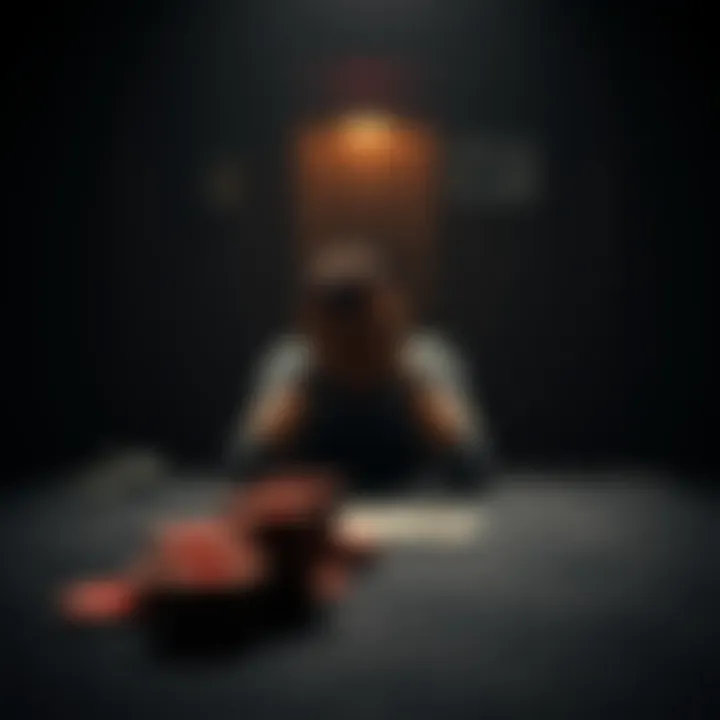Gambler's Frustration | Stuck in a Cycle of Losses and Hopes
Edited By
Clara Johansson

A growing number of gamblers express frustration over their losses, revealing a troubling trend among players in the betting community. Many report struggling to break even or winning more than a mere $65 since starting to gamble in 2023. The experience raises questions about addiction and the desire for quick wins.
The Cost of Hope
Players in various online forums reveal their struggles with betting. One participant shared, "I can’t win for nothing," indicating a recurring sentiment of despair. They feel trapped in a cycle, relying on the hope of a big win while acknowledging the signs of addiction.
Changing Strategies
The discussions reveal changing strategies in betting methods. A fellow player advised, "Stop doing 4 to 6 man power plays! That’s your problem right there," suggesting that less risky approaches may lead to better outcomes. Many community members echo this sentiment, suggesting a preference for lower-stakes flex plays with fewer picks.
"I’d rather have five smaller lineups with 3–4 picks at $2 each than one $10 lineup," noted one bettor who switched tactics after a disappointing season.
Sentiments of Loss
Feedback shows a blend of negative and neutral sentiments among participators, with many advocating for less risky strategies. Comments like, "Why people keep spamming 5-6 legs just take a break man" highlight a collective fatigue with high-risk betting patterns. There's a consensus emerging that taking the time to strategize might yield better results, possibly hinting at a community-wide push for responsible gambling practices.
Key Insights from Players
🚫 Many express frustration over constant losses and declining bankrolls.
🎯 Shifting from high-risk plays to safer strategies is encouraged by several community members.
📉 One remarked, "If your unit size has gone down after a year, might be time to hang it up."
The narratives shared emphasize the struggles many players face while hinting at a larger issue of gambling addiction in the community. As more individuals come forward with their experiences, the call for a reevaluation of betting strategies and a focus on responsible gambling practices increasingly resonates.
Players seem to be at a crossroads, balancing their hopes against the reality of their gambling habits. As frustration mounts, it raises the question: When will the community take a stand against the detrimental aspects of gambling?
Future Bets on Gambling Trends
There’s a strong chance the gambling community will see a shift toward more responsible betting habits as frustrations rise. With many players expressing discontent over their losses, experts estimate around 60% may opt for safer strategies in the coming months. This adjustment could be accelerated by growing discussions around the dangers of gambling addiction, encouraging participants to reevaluate their approaches. As community boards continue to feature testimonials of struggle, there's potential for a united stand against high-risk behavior, ultimately paving the way for more structured support resources and responsible gaming practices.
Echoes from Past Financial Crises
In the 2008 financial crisis, many investors found themselves trapped in a cycle of hope and despair, mirroring the current plight of gamblers. Just as real estate investors faced harsh realities after years of chasing profits, today’s gamblers are grappling with the fallout from unyielding betting losses. The same blend of optimism and disappointment resonated with those who learned hard lessons during that time. This historical echo serves as a reminder that, much like financial markets, the gambling landscape thrives on cycles of hope and risk, where the resilience of community learning could redefine paths forward.
